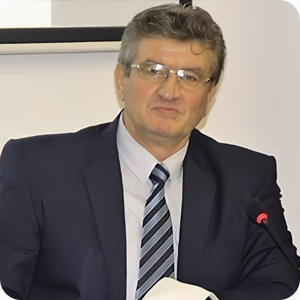In December 2023, the European Council gave the green light to the Republic of Moldova and Ukraine to join the European Union. This process has been accompanied by long debates and uncertainties and there remain many different opinions on the issue, with both states facing a long road ahead before obtaining official EU membership. Does the historic decision affect only the two countries or the entire European Union? Let’s check out some opinions about this from DevelopmentAid experts.
Key Takeaways:
- On December 14, 2023, the European Council decided to open accession negotiations with Ukraine and Moldova, and granted candidate status to Georgia.
- During the negotiations, the countries must implement EU legislation and standards. For a country to become a member of the EU, all member states and the candidate countries must sign and ratify the Accession Treaty.
- According to experts, this decision has the potential to expand the EU’s population and economic boundaries, creating larger markets for goods and services within the EU itself.
- Aligning with the EU frameworks, standards and policies is a lengthy and complicated process. Setting the stage for this could take up to between five and seven years, according to experts. However, experts outline “unprecedented level of public support within the EU” for both countries which could influence the process.
- The Republic of Moldova and Ukraine are two of the poorest countries on the European continent.
DevelopmentAid: How could the decision to initiate EU accession negotiations with Ukraine and Moldova change the European Union?

“While Moldova and Ukraine will start the long journey of accession talks, the EU will need to assess its own capacity to absorb new member states. Such assessment will entail extensive analyses and discussions around the functioning of its governance and budget, and this is likely to generate political fragmentation. As the decision over several policy areas is taken by unanimity, concerns loom over whether the existing EU institutional framework can effectively be operational in the event of potentially expanding from 27 to 35 or 36 member states. As an example, with the current EU framework, Ukraine would be geographically the largest EU member state, but it would also rank among the less developed regions in terms of financial allocation of the cohesion policy funds. This would pose significant implications for the EU’s budget and involve an increase in contributions for countries such as Germany, France and the Netherlands, potentially generating political discontent. Also, the single market would see significant changes in most sectors and markets, with the inflow of labour force and products which entail lower costs than the EU average.”

“Ukraine and Moldova find themselves in the EU’s accession negotiations based on merit. Like a holographic framework created to serve as a mechanism to pacify Europe, democratize Europe, and consolidate peace and democracy in Europe, EU integration is poised to expand and in need of security and development at the same time, and, if stopped, it could mark the starting point of a future demise.”

“This decision could transform the European Union by extending its population and economic boundaries. Essentially, it leads to the creation of larger markets for both selling and buying goods and services within the EU.”
DevelopmentAid: What does this mean both for Moldova and Ukraine? Do you have a timeline in mind when the two countries could become EU members?

“The EU Council’s decision to initiate accession negotiations with Ukraine and Moldova marks a pivotal step in the potential expansion of the EU and a significant political victory for the two candidate countries. For Moldova and Ukraine, this decision signifies a long and demanding path of reforms to align with the EU’s standards, particularly in areas such as the rule of law, anti-corruption measures, and judicial reforms. However, EU membership depends not only on the successful implementation of necessary reforms and harmonisation with the EU legal framework, which display a high degree of technical complexity, but also on the capability of Moldovan and Ukrainian governments to maintain high levels of public support for EU integration through constant transparency and communication about the complexities of the accession process. Additionally, both countries have an unprecedented level of public support in the EU, which must not be wasted: solid bilateral relations with EU member states will be imperative to circumvent the potential threat of a veto that can unilaterally block the process. If we look at the experience of the Western Balkans, it is clear the negotiation process could potentially last for years, or decades. For instance, in Montenegro, the accession process has been ongoing since June 2012: after almost 10 years of accession negotiations, all the 33 screened chapters have been opened, of which 3 are provisionally closed. North Macedonia was granted the candidate status in 2005, but it opened negotiations only recently, following being vetoed by France and Bulgaria. Not to mention Turkey for which, despite starting negotiations in October 2005, the hopes of joining are stalled. However, comparisons with the accession process of the Western Balkans or even Turkey can be misleading given the different contexts and ongoing full-scale war. Even if Ukraine and Moldova managed to fulfill the technical requirements in a relatively short time, the final verdict would above all involve choices of a political nature. As events evolve, other critical and fundamental issues will arise, such as national sovereignty and territorial integrity on borders recognized by international law.”

“The integration of Ukraine and Moldova into the EU is a beacon of hope and a learning pattern for the resolution of economic, ethnic, national, and religious disputes. It is a solution for security and well-being. After the fall of Communism, these countries found themselves in a chaotic situation created by the wrong recipe of “Ruling vs. Governance”. Large-scale corruption associated with Russia’s aggression against Ukraine has injected a sense of urgency. However, once integrated, Ukraine and Moldova will bring a vast territory and potential for development in agriculture, energy, and specific industries to the EU. Furthermore, over 523 cities/towns will join a multicultural EU landscape, learning to build a common spiritual and material well-being together with people from other countries and cultures in that “Europe of Towns”. It is a bright future that could happen around the 2030s.”

“Becoming an EU member would provide Moldova and Ukraine with an expanded economic frontier and larger markets. As Moldova and Ukraine are currently labor-surplus nations, the rest of the EU would benefit. I believe once Hungary ends its opposition to Ukraine’s inclusion and Russia’s convictions that its aggression in Ukraine is futile, change will come quickly. These two nations are at the crossroads of Russia and Europe. However, their histories, culture, and politics have been more favorable towards Europe. The next five years will be important for these two nations to become “European”!”
Ukraine and the Republic of Moldova must meet a set of requirements and regulations to join the European Union. International expertise in various fields is in high demand for this purpose. Explore more than 300 job openings in these two countries here. Additionally, as an Individual Professional Member of the DevelopmentAid community, you’ll gain access to individual consulting opportunities, organizational contact information, shortlists, award notifications, project references, and many other benefits.

